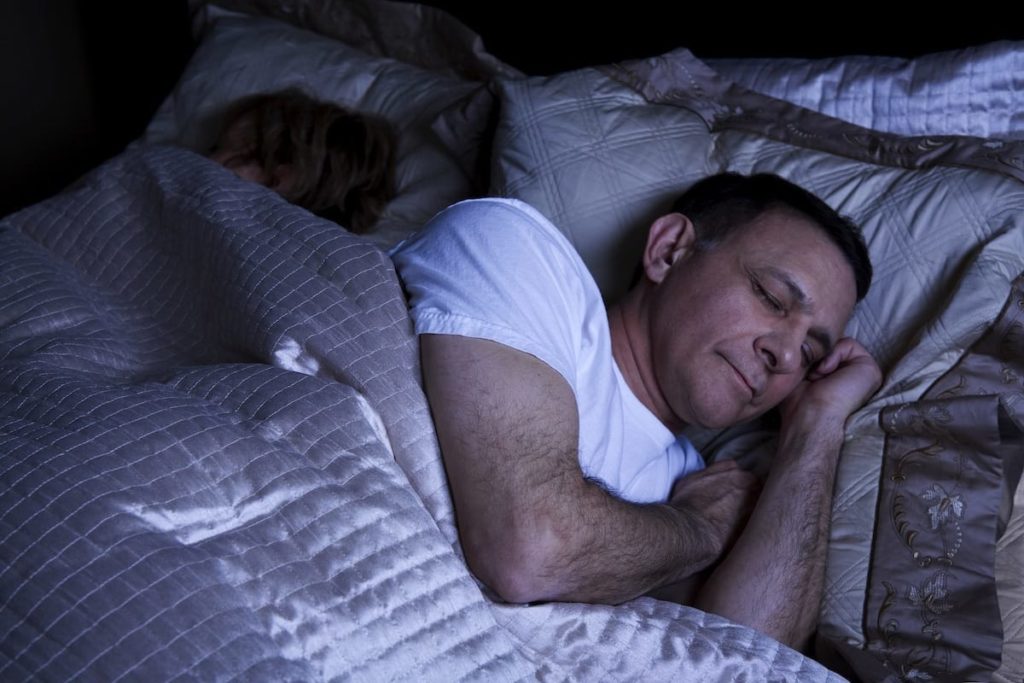Getting a good night’s sleep is always a recommended way to awake refreshed and renewed. It’s even more important when you’re in recovery. But how and why sleep is so essential to healing from addiction may be more involved than you think. To remove some of the mystery and help bolster your resolve to get more Zzzs, here are 10 ways sleep helps speed recovery:
- Sleep reduces relapse risk. Research shows that sleep disturbances increase the risk of relapse to alcohol. In fact, insomnia is a prevalent and persistent problem for people in early recovery (the first 90 days of being clean and sober). Insomnia in early recovery may be up to five times higher than in the general population and may last for a long time if not addressed. By targeting ways to improve sleep and eliminate sleep disturbances, specifically by using cognitive behavioral therapy and other proactive therapeutic practices, you can help reduce your risk of relapse.
- Sleep helps to heal cell injury. Not only does sleep deprivation exacerbate and potentially contribute to addiction relapse, it also damages cells, particularly those in the liver, lung and small intestines. Considering the potentially severe damage to these and other vital organs from the effects of alcohol and drugs, getting sufficient sleep or taking steps to restore healthy sleeping patterns should be a motivating factor in recovery.
- Sleep helps with nutrition. It may seem strange, but sleep actually helps you make better food choices, according to research using functional magnetic resonance imaging. The frontal lobe of the brain becomes damaged with continued sleep deprivation, resulting in an inability to gather sufficient information to make decisions on the right foods to eat, and healthy nutrition is one of the important elements of effective recovery. Research also links sleep problems with obesity. If you want to eat healthier, reach or maintain a healthy weight and help speed recovery, make a point to get plenty of good sleep.
- Sleep helps maintain brain health. Beyond the frontal lobe, all other parts of the brain benefit from getting a good night’s sleep on a regular basis. With the often substantial damage caused by addiction, including its effects on the brain, people in recovery should make sleep a high priority.
- Sleep helps combat stress. Stress is an almost unavoidable aspect of daily living, but that doesn’t mean you have to fall victim to it. Among effective stress-relieving techniques is the recommendation to get a good night’s sleep. Disrupted sleep and sleep deprivation shocks the body’s immune system into the same type of response it has to stress. Although reducing or eliminate toxic stress requires more than just sleep, sleep is an important component to help speed recovery.
- Sleep can help prevent mood disturbances. A 2006 study from the University of Michigan’s Department of Psychiatry found that sleep disturbances can contribute to mood disturbances in the waking hours. Individuals who consistently reported a poor night’s sleep were more likely to be irritable when awake — and potentially more prone to want to return to drinking.
- Sleep may help maintain optimal emotions and social functioning. There are various stages of sleep. Among them, deep sleep has been found to drastically reduce the amount of activity in the parts of the brain that control emotions, decision-making and social interaction. The suggestion is that getting regular deep sleep can help your brain and result in you being able to maintain good emotional control, make better decisions and improve social functioning.
- Sleep reduces depression risk. It’s not unusual to experience ups and downs in recovery, particularly in early recovery. But when disappointments and feeling blue last longer than two weeks, it could be a sign of depression. Studies have linked inadequate sleep to an increased risk of depression. A good way to counter that risk is to get the recommended eight or so hours of sleep each night.
- Sleep helps improve memory and concentration. Sleep’s beneficial effects to addiction recovery include increased memory and concentration. Besides being more alert and able to focus on the task at hand, getting sufficient sleep assists in formation of new memories and the ability to recall what you need to more easily.
- Sleep helps with creative problem-solving. Sometimes the right solution or approach to a particular problem faced in recovery seems just out of reach. Research suggests that getting a good night’s sleep on a regular basis can help spur creativity, particularly in the area of creative problem-solving. One tip is to write down what you want your subconscious mind to work on while you sleep. During your sleep, your mind will be busy sorting through potential approaches and you’ll likely awake with some possible solutions you can explore further. The concept of lucid dreaming may also be helpful in this way.
By Suzanne Kane

